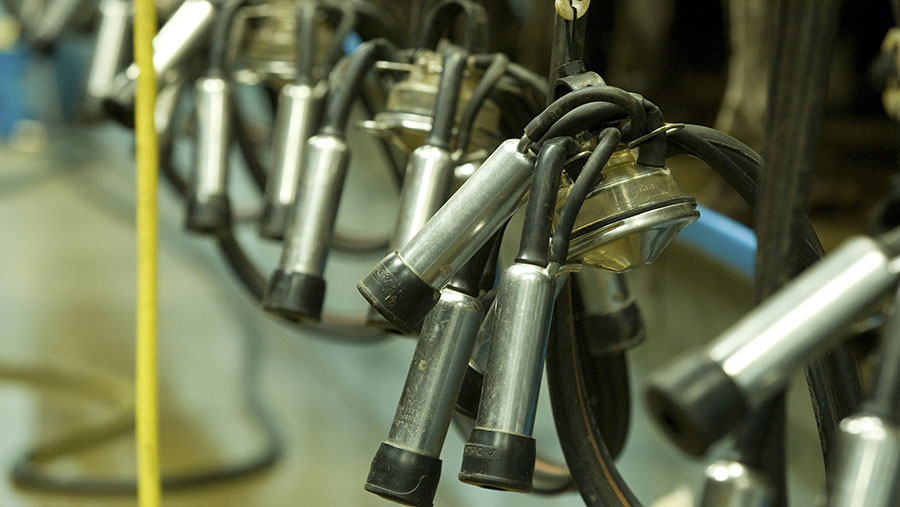Raw milk producers face tougher controls
 © John Eveson/FLPA/imageBROKER/REX/Shutterstock
© John Eveson/FLPA/imageBROKER/REX/Shutterstock The Food Standards Agency (FSA) has announced plans to tighten controls on raw milk production in England and Wales.
Raw milk is unpasteurised and therefore carries a greater risk of containing harmful micro-organisms such as salmonella, campylobacter, E coli and listeria, according to the FSA.
It said greater scrutiny and tougher controls of the raw milk sector are needed because of a significant increase in both producer numbers and customer illness.
See also: So you want to sell milk direct from farm
Up to 2014 there were roughly 100 farmers producing raw milk.
But this grew by more than 70% to 171 by 2018, as an online market developed and demand increased.
However, the rapid expansion saw a parallel increase in customer illness. Between 2015 and 2017, there were five outbreaks of illness linked to raw milk compared with no outbreaks during the previous 12 years, the FSA said.
Within these outbreaks, there was a total of 103 reported cases, with some people requiring hospital treatment.
The FSA responded by carrying out a consultation in early 2019. This was conducted in conjunction with the Raw Milk Producers Association (RMPA), which has advised on the new controls that will come into force on 1 April 2020.
Tali Eichner, RMPA membership secretary, said she was pleased to have been engaged in constructive dialogue with the FSA throughout the process.
“The approach proposed by the FSA enables the producer to assess the risks in their own system and set controls appropriate to their individual situation,” Ms Eichner said.
Hazard assessments
She explained that producers will be expected to carry out full hazard analysis and critical control point (HACCP) assessments that identify risks to the product safety and the measures implemented to prevent contamination.
These measures will be assessed during routine inspections, which will also include more in-depth audits of the farm.
Dairy hygiene inspectors already look at the milk-producing facility. But their visits will scrutinise things more widely, including pest control, feed storage and veterinary records, across the whole unit, said Ms Eichner.
Milk sampling will also look beyond the standard hygiene controls to test for specific pathogens.
Ahead of the stricter regime, the FSA has produced a 37-page document that sets out what will be required of producers.
The guidance, which must be read and adhered to from 1 April 2020 states:
- Anyone planning to sell raw drinking milk must first register as a food business with the FSA.
- Farms already registered must notify the FSA of an intention to start selling raw drinking milk.
- Raw milk producers face an initial check and milk sampling by dairy hygiene inspectors.
- Inspections will be on a six-monthly basis thereafter.
- Farms are legally required to devise and implement a safety system that includes an assessment of risks of their product.
- The system must also identify controls to prevent the risks from affecting their product safety.
- Producers are expected to adopt recommended periodic testing for specified pathogens and indicators of poor hygiene and disease that can be found in milk.
- Local authorities will be informed of proposed raw milk production by the FSA. However, producers must also contact the local authority, which may want to carry out its own inspection of the filling and bottling process.
Michael Wight, head of food safety policy at the FSA, said: “Food businesses must follow the measures set out in this guidance in order to reduce the health risk to consumers from this product.
“The FSA will continue to monitor any health incidents associated with raw drinking milk to see if these measures are sufficient.”
Further information
Guidance for raw milk producers (PDF)
It should be read in conjunction with the Food Hygiene Regulations (Wales) 2006 and the Food Safety and Hygiene Regulations (England) 2013.
In England and Wales, contact the FSA on approvals@food.gov.uk
In Northern Ireland, email executive.support@food.gov.uk
The sale of raw milk is banned in Scotland
